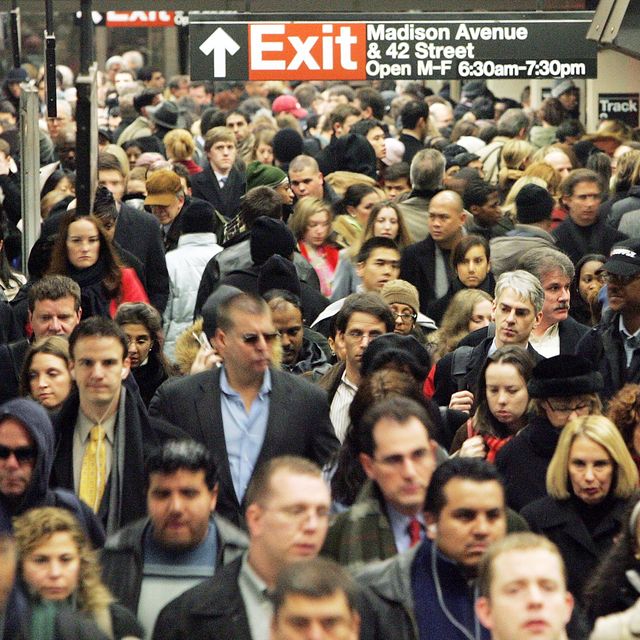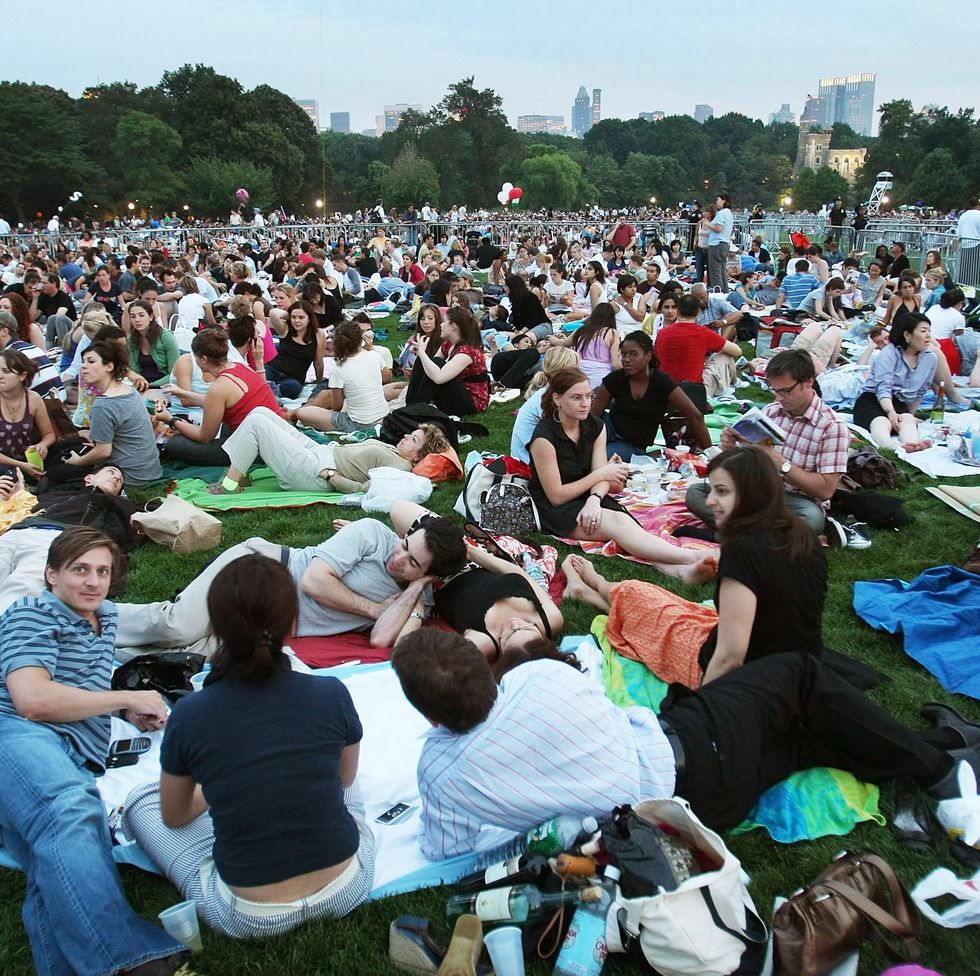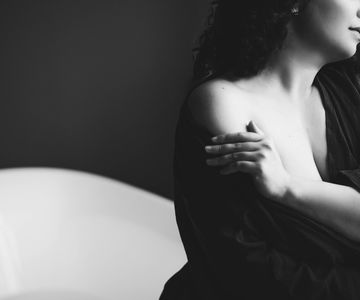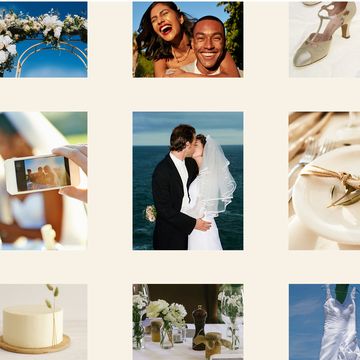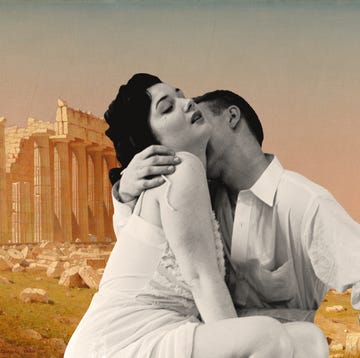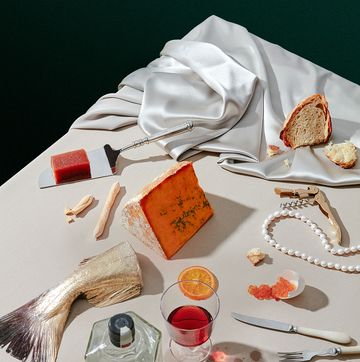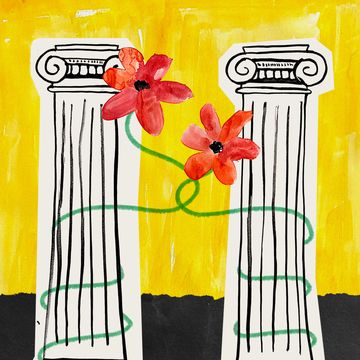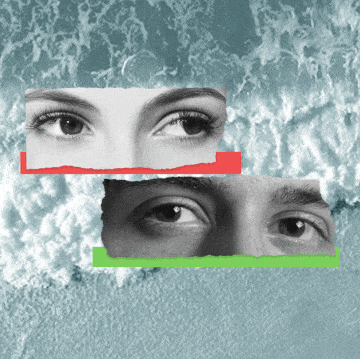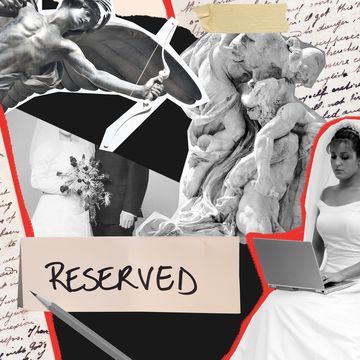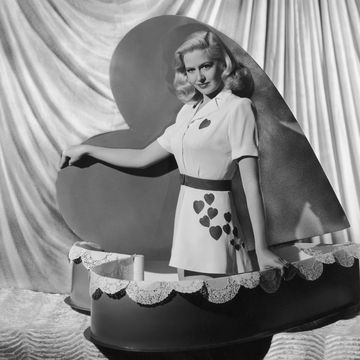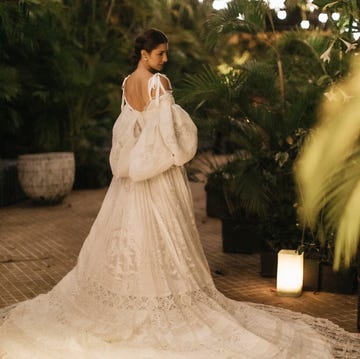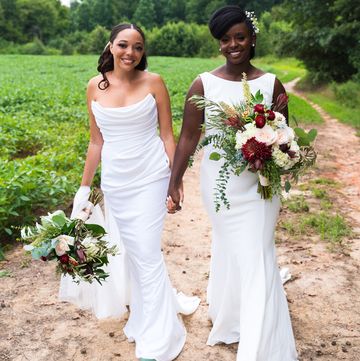For the past year, we've been living in what has been endlessly dubbed our “new normal.” In our “new normal,” we stay inside. We don’t see people we don't live with, and when we do, it’s with masks on and at least six feet apart. In our “new normal,” we cancel our gym subscriptions, our dinner parties, our vacations—essentially all of our plans. We develop solo hobbies, like needlepoint or baking, and we do what we can to keep ourselves and everyone around us safe. We judge each other’s every action like we’re in a heightened version of The Good Place, where every move you make has a point value attached— one that decides whether you’re a decent person or not.
Change your life, the “new normal” demanded. And so I did. I avoided people. I took up puzzling. I read the news. I donated to ceramic studios and bought T-shirts from small restaurants. I went on Instagram, and it made me sad, but there was nowhere else to go. I trimmed and strained and restructured, pouring myself into this new mold of a pandemic self. At times, I’d go stir crazy, but eventually I found myself growing into my commute-less, bra-less, outing-less days, if only because they were relentless and unavoidable.
Now, after what feels like a lifetime, the tides are starting to turn. President Biden announced that the United States will have enough vaccines for all adults by the end of May. Teary, grateful vaccination selfies populate my social feeds. In February, The Atlantic declared that we could expect a “A Quite Possibly Wonderful Summer.” It’s all emotional and exciting; turns out hope, which has been off the menu for some time now, tastes pretty good.
But also, I'll admit it. I’m getting nervous.
Don’t get me wrong: I’m thrilled to hopefully get a vaccine soon. I want to hug my friends. I want to see my parents without worrying about killing them. I want everyone’s lives to become calmer and safer. There are smaller, more selfish things too. I want to go out and dance to all the songs from the past year that I’ve only heard through my headphones. I want to go to a yoga class and be so close to someone else that I can barely keep our arms from touching.
But I’m anxious. Do I even know how to do these things anymore? When I talk to people now, I often don’t know what to say. “How are you?” is such a big question, and yet I have no news to share. I feel like I’ve lost the art of conversation; more than ever before, social interactions leave me overthinking. Plus, there are so many people I haven’t seen in more than a year—how to make up for all that time? I think back to what my weeks used to look like pre-pandemic: plans almost every single night, sometimes a few stacked on top of each other, rarely getting home before 9 or 10 p.m., occasionally doing it all in heels. Now just the idea makes me exhausted, and I wonder how I ever did it before. With my COVID goggles on, my old life seems so quick and sharp; my body can only handle softness now.
In a recent article in The Atlantic, Ellen Cushing wrote about a friend who confessed that his previous morning routine—“wake up before 7, shower, dress, get on the subway”—now felt “unimaginable on a literal level.” Cushing wrote: “…in the cold, dark, featureless middle of our pandemic winter, we can neither remember what life was like before nor imagine what it’ll be like after.”
And so I worry. How will my new self fit into our impending new-new normal? Of course these concerns are also rooted in incredible privilege; the choice to stay safe and separate this past year is a luxury that’s been afforded to far too few. But there’s this sense that people are waiting for a resounding “Go!” and then suddenly every postponed wedding, birthday, and party will dot our calendars—the pressure to do so much, now that we “can.” All without our well-worn excuse of COVID to say no. In some ways, I also can’t wait—the idea of leaving my home without fear still feels too good to be true—but at my worst, I feel lazy and apathetic, incredulous that my endurance could ever be what it once was.
I remind myself that the change will be gradual; for many of us, life won’t go from zero to 100, even after we’ve been inoculated. Maybe, though I can’t visualize it now, there will be room for a middle, somewhere between our old lives and this new one. Chris Segrin, a professor of communication at the University of Arizona, recently told The Cut that social skills can atrophy from disuse. One can only assume they can also become strong again.
Though I can't imagine a world in which I’m not constantly moving away from people—clocking whether they have their mask pulled over their nose or wearing one at all—I know my March 2020 self couldn’t have dreamed up this current world order. I was able to (mostly) adjust to this version of my life, so why can’t I do it in reverse? I’m nervous, yes. But I’m also thankful for the chance to try.
Madison is the digital deputy editor at ELLE, where she also covers news, politics, and culture. If she’s not online, she’s probably napping or trying not to fall while rock climbing.
